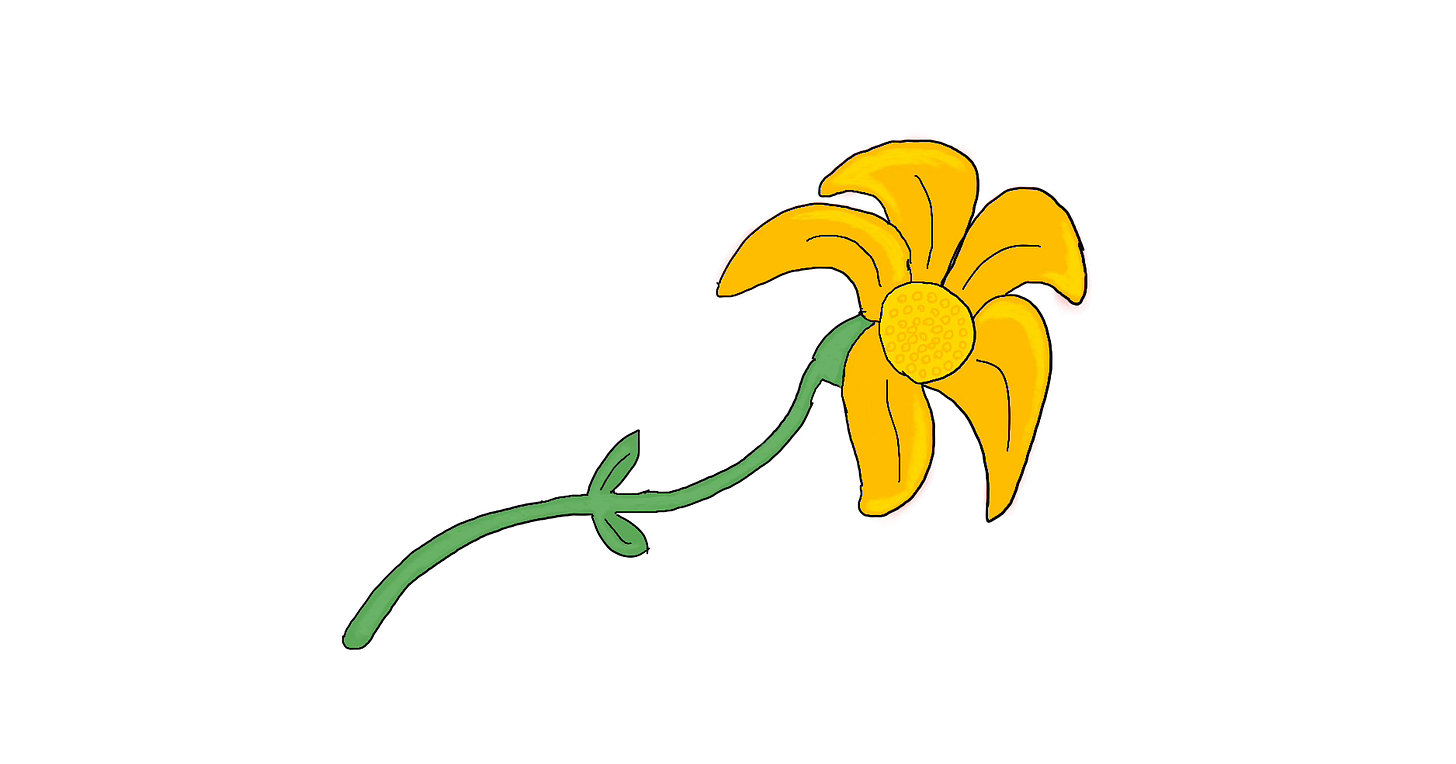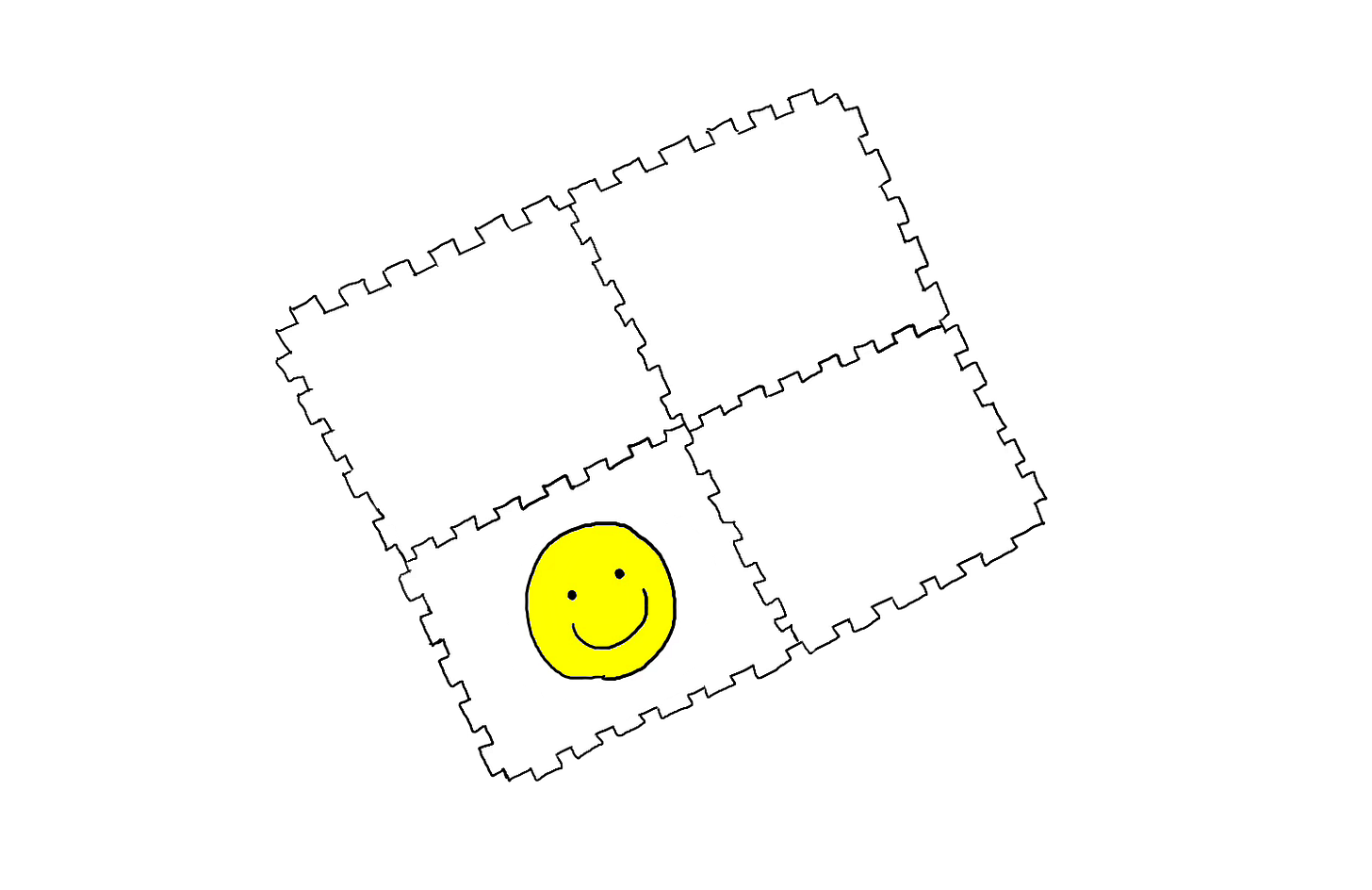Confession: I am not a Deadhead. How I yearn to be one, though. I wish I were permanently stoned. I wish I could twist my unwashed hair into dreads. I wish I could pull off tie-dye and color-tinged glasses (a recent splurge: new glasses (I was overdue for an upgrade) with green-tinted lenses, for which I paid an extra $70. Partly because it looked so unbelievably cool and partly because it allowed me to approximate the essence of wearing sunglasses indoors and to emulate Jack Nicholson without seeming like a pretentious dilettante. “They’re prescription!”). I wish I talked slow—perhaps I already do this, but there is always room to decrease the tempo. I wish I rode around in a van. I wish I took that van cross country and slept in it, ate in it, bathed in (outside of) it. I wish I walked around barefoot.1 I wish I could indulge in the simple pleasures of life and balk the noise of neuroses.
I wish, I wish, I wish.
Since The Grateful Dead is a subject of intrigue, I decided to conduct some research (regrettably, no one I know is a Deadhead—is that a negative reflection of me?—so I am limited to secondary accounts). You might be surprised at the repository of journal articles and academic essays devoted to parsing the Grateful Dead mystique that is available on JSTOR. Here is a particularly joy-inflating, absolutely rad quote that, I think, encapsulates the appeal of the Dead:
Mythologist Joseph Campbell, who’d never been to a rock concert before attending, at the age of eighty, a 1986 Dead show, “got it” immediately—he saw the rapture in the faces of Deadhead dancers and knew that he had stumbled upon a modern-day Dionysian revel. This wasn’t just rock ’n’ roll—it was an unselfconscious celebration of life manifested in music and dance and community. He later declared that the spirit exemplified by the Dead and their fans represented, in human terms, “an antidote to the atom bomb.”
One could make the case that such language has a cultish quality. Well, if that cult comes with the benefits of good music and good vibes, sign me up.
According to Reddit user 1gratefuldude, being part of the Dead community was “an act of love, of giving, of life-affirming celebration, where all were welcome, as long as you were cool, man. Respecting others, being peaceful, living and loving life, on your own terms.”
If ever there were one word by which to lead your life, it is cool. Be cool and others will be cool to you.
The Deadhead subculture is one to be admired. For a music junkie, there is hardly a better vocation than to follow your favorite band around the country, immersed in a group of kindred spirits, listening to psychedelic and easy-going tunes, shirking the unnecessary stresses of modern life. There is a madness to this itinerant occupation (to be any sort of fervent admirer of the arts you need to be a little insane). Or is it insane? Perhaps it is our implicitly agreed upon structure of adult life that is insane: spend eight hours at a job you feel tepid about, spend (potentially) one to two hours commuting, eat what is likely a blasé dinner, “enjoy” an hour of downtime, which, in all likelihood, constitutes a temporary comatose state in front of the television, then retire to bed and do it all over again the next morning, and the next, and the next, ad nauseam.2
How many people do you know actually, ahem, follow their dreams? How many spend the four years of college letting loose, then find themselves sucked up (and quite pleased to be sucked up) by the corporate colossus post-graduation? The same individuals who you touted for their intrepid, whimsical souls now post that unbearably superficial blather on LinkedIn, ensnared in the subculture of Synergy, Profit Margin, and E-Suites. Who can blame them? We’re all products of the society we’ve created—a strange sort of inbreeding. The prospect of tilting at windmills is such a harrowing one that it’s easier to leap into the river of reality and let the current carry you to the natural conclusion.
What are the logistics of being a nomad? How do you pay for gas? Where do you shower? What do you do in the idle stretches between tours? Do you have a day job? I suppose that true Deadheads do not consider these bureaucratic constraints of our ill-organized society.
I also find myself wondering: why? Why did The Grateful Dead become this hallowed object of obsession? Objectively, their sound is not as experimental or distinctive as that of their contemporaries. Think Jimi Hendrix or Jefferson Airplane. Out of all the groups to emerge from the flower-power-fueled ’60s, how did the Dead spawn a subculture that outlived all subcultures? Everyone was a hippie then. Everyone embraced love and psychedelics and the transcendent powers of tremendous music. What is the secret of the Dead? I don’t have an answer. Perhaps that is true of all cultural phenomenons: they are phenomenons because their existence precludes rational explanation.
Because I am not a Deadhead, I didn’t know where to start. I avoided the popular releases. On Spotify, the scope of albums gave me an immediate headache. Live recordings, compilations, expanded and deluxe editions, a muddled discography of disorientation. I quickly abandoned my original plan of performing a brief, organized study of the chronology and just dove in. With music, that tends to be the best course of action. Spontaneity. The groove. Waiting for that alignment between body and soul. It happened with “Cream Puff War.”
Recorded in 1966 at the Fillmore in San Francisco, “Cream Puff War” embodies the best qualities that typified the music of the era: electric organ, an extended guitar solo and a generally long instrumental interlude, quasi-shouts for vocals. It is so imbibed with the aura of the ’60s that you can almost see the unshampooed sideburns, the sea of swirling tie-dye, the headbands and the velour vests.
Further scouring has revealed that “Cream Puff War” hails from the Dead’s first album. In all likelihood, that means the song is not indicative of the ambience revered and reveled in by Deadheads. That leaves me with two more questions: How best to mimic the mood of a Dead concert in my sequestered lodging in the suburbs? Further still, how best to mimic that mood on the soundless plane of a page?
Sometimes, life seems to be one big, bad acid flashback. Pulsating headaches, menacing shadows flitting before your eyes, a general and all-encompassing cloud of dread. What can we learn from the Deadhead ethos to combat the banality and futility of everyday life? Listen for the melodies in nature: the crunch of leaves beneath your feet, the squeals of wind as it whips past your windows, the skyward honks of the last migrating geese. You can discover the sounds of life anywhere. All you have to do is open your mind and your ears.
Coming to the end of this piece, I’ve realized that you do not have to listen to the Grateful Dead to be a Deadhead. That is, to embody the Deadhead culture. Take their mantra, their spiritual tenets and mold them around your listening tendencies. Be a Sabbathhead. A Dylanhead. A Zeppelinhead. Just be cool, celebrate life, and find rapture.
These are all preconceptions, perhaps even misconceptions, but they are not stereotypes because they are written without malice. In fact, these are points of applause, of aspiration.
Admittedly, this is reductive. Plenty of people are content with this type of life. Plenty of people aren’t but cannot afford to abandon it. How do we reconcile the necessity of money for survival with the necessity of art for survival?







https://youtu.be/nwPgBEZaZLQ?si=YlJZlFA0KQZUSjJn